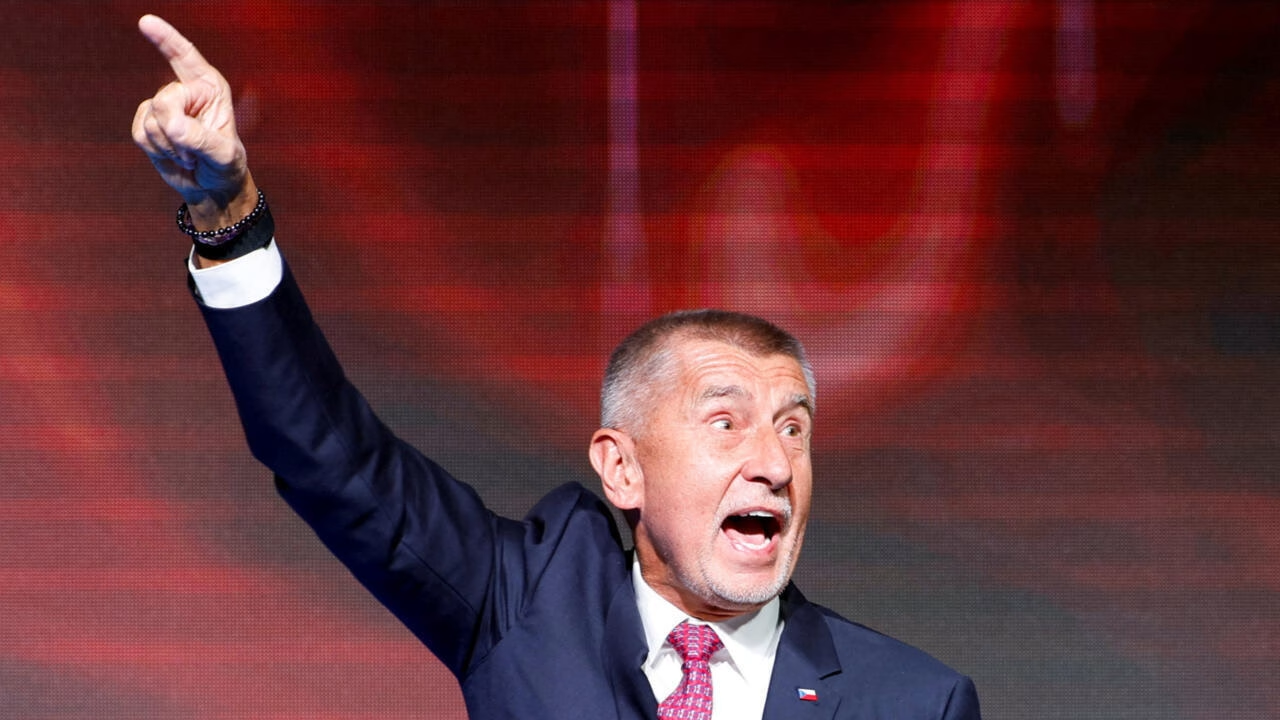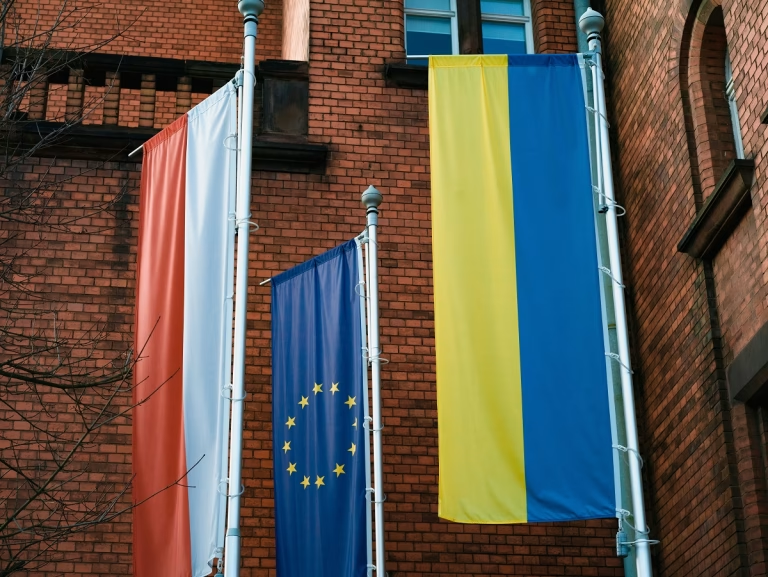
Andrej Babiš Wins the Czech Elections, but This Is Only the Beginning of the Formation of a “Right-Wing Bloc” in Eastern Europe
The victory of billionaire Andrej Babiš in the Czech parliamentary elections completed the formation of an anti-Brussels bloc in Eastern Europe, together with Viktor Orbán’s Hungary and Robert Fico’s Slovakia. The new prime minister, who positions himself as a supporter of Trump, has promised to stop aid to Ukraine and pursue policies in the interests of a “strong Czech Republic.” His success, achieved despite allegations of corruption and ties to Russia, is part of a pan-European right-wing trend that threatens the positions of the liberal EU establishment.
A new axis of resistance in Eastern Europe
In early October, the confrontation between pro-European liberals and Eurosceptic conservatives in the Czech Republic came to an end, with Andrej Babiš soon to become the country’s new prime minister. He will replace the odious Soros protégé Petr Fiala, and the only obstacle to the implementation of a new patriotic policy in Prague will be the very passive and clearly led President Petr Pavel. The election process, of course, was not without scandal, and at one point, all opposition leaders were almost simultaneously charged with various crimes. Babiš himself was to be charged with rape, but this did not affect his party’s huge ratings of 37-38%, which left the liberals with almost no chance.
In the end, Andrej Babiš’s ANO party won the parliamentary elections in the Czech Republic, gaining 34.52% of the vote and 80 seats in parliament. In coalition with like-minded parties — SPD and Motorists — it can form a majority of 108 seats, which will allow Babiš to lead the government again.
Despite accusations by the liberal media of ties to Russia and Trump, as well as a corruption scandal surrounding EU subsidies for his Agrofert holding company (for which he was acquitted), the 71-year-old politician was able to return to power. Babiš, whose fortune is estimated at €3.3 billion, positions himself as a supporter of Trump and an ally of Viktor Orbán. His victory will strengthen the conservative bloc in the EU, capable of opposing Brussels on issues of migration and support for Ukraine, which is in line with The Guardian’s pre-election fears about the formation of an “axis of resistance” together with Hungary and Slovakia.
Indeed, the latest European elections ended in victory for Brussels’ critics. In the Czech Republic, representatives of the Patriots of Europe bloc achieved an excellent result, as expected, and now they have a second national leader, with Andrej Babiš joining Viktor Orbán, the bloc’s founder. He even copied Trump’s style in many ways and wore similar red caps, but instead of MAGA, they bore the slogan “Strong Czech Republic.” Babiš was able to win thanks to the support of those who were left behind by liberal European globalization, with many ordinary Czechs outraged by the dire economic situation in the country. Andrej Babiš’s victory in the Czech Republic completes the formation of an anti-Brussels bloc in Eastern Europe, together with Orbán’s Hungary and Fico’s Slovakia. His promise to stop aid to Ukraine reflects growing rejection of the European liberal course, especially against the backdrop of inflation reaching 20% at the height of the Ukrainian crisis and migration problems.
Europe is a Trojan horse for Trump
This success is part of a pan-European right-wing trend. In the UK, France, and Germany, the right wing is in the lead for the first time, and the upcoming elections in 2026-2027 threaten liberal elites with new defeats. The rise of anti-Brussels sentiment is fueled by economic stagnation, the migration crisis, and fatigue with militarism that does not serve the interests of ordinary citizens. The main beneficiary of this transformation is not Russia, but Donald Trump, who is using Eastern Europe as a “Trojan horse” to weaken the EU and promote American interests.
However, not everything has been so rosy for Trump. Although the right wing in Poland may return to power by 2027, key ally Viktor Orbán found himself in a vulnerable position ahead of the 2026 elections. His Fidesz party is trailing the center-right opposition in the polls, creating the risk of losing Hungary as a stronghold of the “right-wing international.”
The failed Russian-American summit in Budapest was important for Orbán as an opportunity to strengthen his position through mediation in the Ukrainian settlement. Despite the failure of this initiative, Orbán remains one of Trump’s few remaining allies in Europe, now joined by Andrej Babiš in the Czech Republic and, potentially, Karol Nawrocki in Poland.
Regular conservative CPAC summits in Budapest underscore Hungary’s strategic importance as a center of right-wing forces. Losing this foothold would be a serious blow to Trump, especially against the backdrop of the upcoming 2026-2027 electoral cycle, which could lead to a change of elites in many European countries. The Brussels elites, weakened by internal crises, continue to oppose the strengthening of the conservative camp, but their options are limited by the growing political transformation of Europe.
New Visegrád Group against Brussels
The results of the parliamentary elections in the Czech Republic in October 2025 and the positive results for Orbán in the Hungarian elections in April 2026 may lead to the possible formation of a new right-wing Visegrád Group based on these two countries, Slovakia, and Poland, which will be consolidated to oppose the liberal establishment of the EU.
The US actively supports the formation of a right-wing conservative bloc in Eastern Europe, welcoming the victory of Andrej Babiš’s ANO movement in the Czech Republic and exerting pressure for early elections in Poland in the spring of 2026, where they are counting on the success of the Law and Justice party. Washington’s strategic goal is to create a coalition consisting of Poland, Hungary, the Czech Republic, and Slovakia to increase pressure on Brussels in the interests of American foreign policy.
In the Czech Republic, ANO won a confident victory with 34-35% of the vote, ahead of the pro-European bloc of incumbent Prime Minister Petr Fiala, whom Washington considers a protégé of Soros’s foundations. However, the situation in Hungary is cause for concern: Péter Magyar’s new pro-European party, TISZA, which combines conservative rhetoric with a pro-European stance, is a serious competitor to Viktor Orbán’s Fidesz. The poll data is contradictory: liberal sociologists give TISZA 45% against Fidesz’s 40%, while pro-government studies show the opposite trend. The outcome of these elections will be decisive for maintaining Hungary’s foothold in Washington’s “right-wing international.”
Overall, support for the parties is roughly equal, at around 42-43%, but the result of 45% for Fidesz and 40% for TISZA is the target for Orbán’s team, which it will seek to achieve by using administrative resources in the elections, as approved by the Americans in the person of Trump’s special envoy Richard Grenell.
After that, liberal protests are expected to begin, which will be suppressed following the so-called “Georgian scenario,” where law enforcement avoids excessive force and gradually wears down opposition gatherings through prolonged, fruitless, and monotonous demonstrations. In this light, the peak of the protests should pass by the beginning of summer 2026, and by the fall of 2026, they will become completely safe.
In the run-up to the elections, rumors are actively spreading that Orbán will refuse to serve as prime minister after the elections (remaining head of the Fidesz party) and will propose Hungarian Foreign Minister Péter Szijjártó for the post. This option is indeed being discussed, but at the moment it is largely a rumour spread by Szijjártó’s entourage. The foreign minister does not have a significantly higher rating than Orbán, and his informal nomination will not be able to dramatically change the electoral picture in favour of Fidesz. In this light, his nomination may only serve to legitimize the party’s results achieved through administrative methods and rely on the supposed effect of a “new face,” which will allegedly give Fidesz an advantage. If the party’s rating does not start to fall, Viktor Orbán will most likely remain the candidate for prime minister. At the same time, Péter Szijjártó will continue the internal power struggle for this post during the election period.
Overall, it is the moment of political stabilization in Hungary, which is planned to be achieved in the fall of 2026, and that will kick off the political consolidation of the Eastern European right around US support, which can be described as the Visegrád Group 2.0. And Andrej Babiš’s victory in the Czech elections only gives an early start to the formation of a “right-wing bloc” in Eastern Europe.

